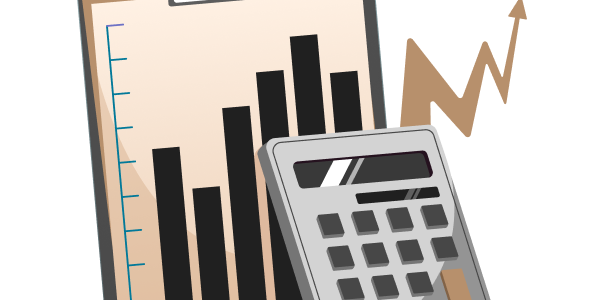What is capitalisation?

Capitalisation is a shorthand formula that enables traders to work out a company’s market value.
In finance a traditional definition of capitalisation is the dollar value of a company’s outstanding shares. It is calculated by multiplying the number of shares by their current price.
The formula to calculate market capitalisation is: MC = N x P.
This is where:
MC is market capitalisation
N is the number of outstanding shares
P is the closing price per share
For example, if a company had five million shares trading at $10, its market capitalisation would be $5m.
Key takeaways
Capitalisation is the total market value of a company’s outstanding shares of stock.
Market capitalisation is calculated by multiplying the current market price of a company’s stock by the total number of shares outstanding.
The higher a company’s market cap, the more valuable it is considered to be by traders and investors.
Understanding capitalisation
Market capitalisation is a measure of a company’s size and can be used to evaluate its financial health. Companies with a larger market cap are usually more established, have more liquidity and are more widely known.
A larger market capitalisation may also make it easier for a company to raise capital, as it has a larger pool of potential investors. On the other hand, a company with a smaller market capitalisation may be more risky and volatile, and may have a harder time raising capital.
Depending on their size, companies are generally classified on a scale ranging from large-cap to nano-cap.
| Market cap level | Market value |
| Mega-cap | > $200bn |
| Large-cap | $10bn to $200bn |
| Mid-cap | $2bn to $10bn |
| Small-cap | $300m to $2bn |
| Micro-cap | $50m to $300m |
| Nano-cap | < $50m |
Traders often use market capitalisation to assess a company’s potential for growth and the risk that goes with it. Since outstanding shares are traded publicly, capitalisation often serves as an indicator of public opinion about the company’s net worth and is regarded as a determining factor in a stock’s valuation.
Market cap is also used to rank the size of companies and to rank a relative size of stock exchanges. Usually, such calculations are performed at significant dates, such as December 31 or June 30.
How does capitalisation work?
Market capitalisation can often be used as a performance indicator, allowing traders to track a company’s performance over time and compare it to the performance of its peers. It is also used to calculate a company's enterprise value, which is a measure of the overall value of the business.
Common performance metrics that use market capitalization include price-to-earnings (P/E) ratio, return on equity (ROE), return on assets (ROA), earnings per share (EPS), and price-to-book (P/B) ratio.
Conclusion
Capitalisation is a measurement of the value of a company or stock, calculated by multiplying the total number of outstanding shares by the current share price. It can be a useful tool for traders to determine the financial health of a company and make a better informed decision about whether it is the right asset for them to invest in.
However, even when using a market cap analysis to make informed trading decisions there is always the risk of the market moving against a traders position and them making a loss as a result. It’s important for each trader to do thorough research into an asset before investing, and to never trade with more money than they can afford to lose.
FAQs
What is market capitalisation in simple terms?
Market capitalisation is a measure of the value of a company. It is calculated by multiplying the total number of a company's shares outstanding by the current share price.
What does capitalisation mean in accounting?
Capitalisation in accounting is the process of recording the cost of an asset as an asset on the balance sheet, instead of recording it as an expense on the income statement. This is done to recognise the long-term value of the asset, as it will provide future benefits to the company.
Related Terms
Asset
An asset is anything you own that you expect to make or save you money in the future. It can be...
Basic Earnings Per Share
Basic earnings per share (EPS) is a simplified valuation of the amount of a company’s...
P/B ratio
It's shorthand for price-to-book ratio. Analysts use it to compare a stock's market...
Outstanding shares = shares outstanding
Also known as 'shares outstanding', this term refers to the shares that are owned by a...
Latest video





